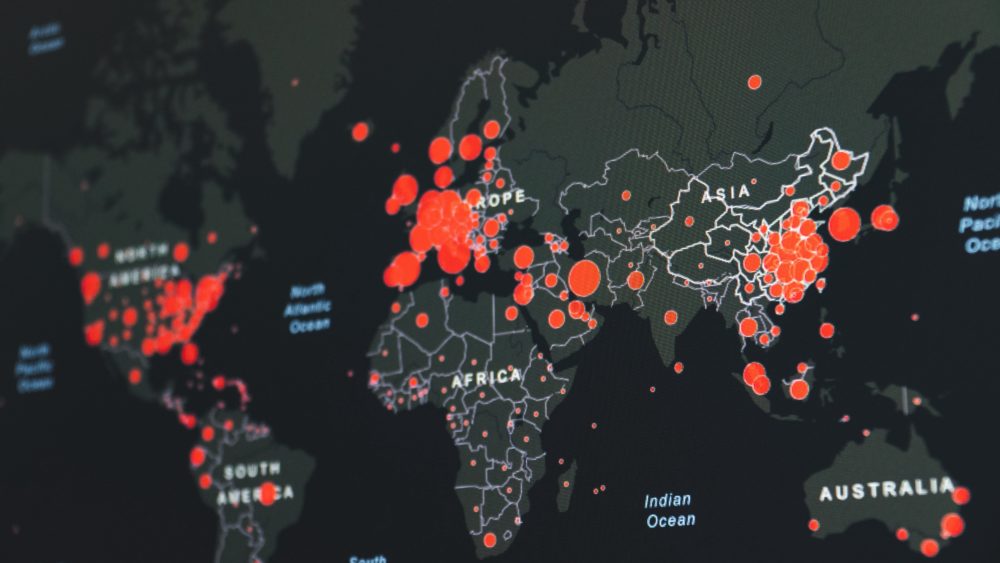COVID-19 may be wreaking havoc on businesses big and small, but there are winners in the pandemic economy. Namely, big data companies. Specifically: Palantir, a company funded by Donald Trump donor Peter Thiel.
Billed as “the world’s leading software for data-driven decisions and operations”, Thiel’s Palantir has gathered an array of government contracts since the coronavirus outbreak. It started with the Center for Disease Control (CDC) contact in late May ($675k). Followed by the Coast Guard in early April ($8.1 million). The two most recent, signed April 11th and 20th with Health and Human Services(HHS), are the biggest at $30 million.
The contracts are split between Palantir’s two entities, Gotham and Foundy, and both have a goal to use data to improve government response to the coronavirus. Palantir Gotham won the HHS contract to provide a “platform” that can import data from various sources. Palantir Foundry won the CDC contract to help “visualize” virus spread and ensure hospital preparedness. Palantir’s contract with the Coast Guard remains undisclosed.
The many contracts between Palantir and the federal government have not gone unnoticed by privacy advocates.
They have long criticized the company’s work with ICE in deportations, spying for the Pentagon, and NSA surveillance. A concern long raised by privacy advocates is Palantir’s growth out of In-Q-Tel, a CIA business investment arm.
Despite privacy criticism, Palantir has secured contracts beyond the US border. Palantir Foundry received a ‘no-bid’ contract with the UK’s National Health Service (NHS) to assist with the coronavirus response. National Health spokesperson Matthew Gould worked to tamp down privacy fears by stating Foundry had been “primarily developed” in the UK. Talks with Germany, France, Austria and Switzerland are also in the works.
Palantir isn’t the only company to benefit from government contracts amidst the pandemic — nor the only one that raises privacy concerns with the work involved.
Cyber-intel firm Cellbrite, long used by law enforcement to track a suspect’s movements, are pitching governments on “contact tracing” software, which would track someone suffering from coronavirus as well as anyone they came in contact with.
Contact tracing isn’t limited to cyber-intel terms like Cellbrite. Apple and Microsoft pitched the Trump administration on a contact tracing app that would create a “timeline” of an infected person’s movements, and send out a warning to anyone who came near the person in recent days or months. Microsoft released its own contact tracing app CovidSafe, which has raised privacy concerns in Australia due to the government contracting Amazon subsidiary, AmazonWebServices, to host collected user data.
Given the need to track COVID-19 to prevent further spread, weighed against the right to personal data, DiEM25’s proposal of a Universal Basic Dividend are more of a necessity than ever. A percentage of reinvested earnings from technology-based initiatives would keep money in the pockets of ordinary citizens, as well as instill a sense of democratic trust between the general public and Silicon Valley — a bridge the latter has been desperate to forge in the wake of the Edward Snowden revelations. Participation in sharing personal data with the app, a current issue with the app-based attempts to fight COVID-19, should be contingent on nothing less.
Do you want to be informed of DiEM25's actions? Sign up here















